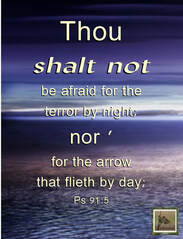
Perhaps you've just lost your house in one of the fires raging in California-and the west.
Perhaps you've lost your crops in one of the devastating storms in the Midwest-another year of losses-and your farm in deep debt.
Perhaps you've lost someone from the corona virus, and now facing the reality of the grief and loss of a loved one.
Perhaps your one of many with a serious illness, and have needed medical care, and not been able to get it-because of the lockdowns, and not being able to keep doctor appointments, or get a needed surgery-this has happened to many thousands-which is not talked about on the media.
Perhaps you are elderly or disabled, living in a city raging with riots; looting, burning, and lawlessness. You may be facing seeing the neighboring markets and shops you depended on to get your necessities to live, boarded up-or burned down by the rioters. In this situation, you may have no way of getting out, even if you wanted to, and you have to try to find a way to survive, in this dangerous environment-and don't know what to do.
Throughout the country, people's lives are being put at risk, in danger, and many have already lost everything. Despair looms across the country, and the government has no answers. They are as corrupt as the rioters in the streets. The innocent are always the ones to be swept away, and destroyed, by the power hungry leaders.
But, we who have put our trust in God, do not look for our answers from corrupt politicians. Whatever we may face, God is the strength and portion of our life. I've learned over many years, He can be trusted, and He answers prayer.
I pray you will find comfort and strength in Psalm 91-and the commentaries, devotional, and music. May it feed your spirit and comfort your soul, and give you the needed strength to look up, talk to the Lord, and help you get back up, and keep going. My prayers are with all the afflicted in this country-God is for us, but we need to seek Him, repent, and put our trust in Him. He is our hope, and He will see us through.
Psa 91:1 He that dwelleth in the secret place of the most High shall abide under the shadow of the Almighty.
Psa 91:2 I will say of the LORD, He is my refuge and my fortress: my God; in him will I trust.
Psa 91:3 Surely he shall deliver thee from the snare of the fowler, and from the noisome pestilence.
Psa 91:4 He shall cover thee with his feathers, and under his wings shalt thou trust: his truth shall be thy shield and buckler.
Psa 91:5 Thou shalt not be afraid for the terror by night; nor for the arrow that flieth by day;
Psa 91:6 Nor for the pestilence that walketh in darkness; nor for the destruction that wasteth at noonday.
Psa 91:7 A thousand shall fall at thy side, and ten thousand at thy right hand; but it shall not come nigh thee.
Psa 91:8 Only with thine eyes shalt thou behold and see the reward of the wicked.
Psa 91:9 Because thou hast made the LORD, which is my refuge, even the most High, thy habitation;
Psa 91:10 There shall no evil befall thee, neither shall any plague come nigh thy dwelling.
Psa 91:11 For he shall give his angels charge over thee, to keep thee in all thy ways.
Psa 91:12 They shall bear thee up in their hands, lest thou dash thy foot against a stone.
Psa 91:13 Thou shalt tread upon the lion and adder: the young lion and the dragon shalt thou trample under feet.
Psa 91:14 Because he hath set his love upon me, therefore will I deliver him: I will set him on high, because he hath known my name.
Psa 91:15 He shall call upon me, and I will answer him: I will be with him in trouble; I will deliver him, and honour him.
Psa 91:16 With long life will I satisfy him, and shew him my salvation.
Note: There is no monetary gain intended in sharing this video.
This video may contain copyrighted material. Such material is made available for educational purposes only. This constitutes a 'fair use' of any such copyrighted material as provided for in Title 17 U.S.C. section 107 of the US Copyright Law.
I
In the Secret Place
1. “He that dwelleth in the secret place of the Most High.” We get the clearest idea of the meaning of this phrase by an examination of the different passages in the Psalms where the word here translated “secret place” occurs. Thus in Psa_31:20, we read: “Thou shalt hide them in the secret of thy presence”; also in Psa_83:3, where another form of the same word occurs, we read of God’s “hidden ones.” From these and similar passages we find that the word is usually connected with the idea of a fugitive hiding from his pursuers. It calls up before us the picture of a man running away from his enemies. Weary and panting, he knows not where to hide himself, and in his despair he flees to some friend of his and seeks protection, and the friend hides him in a secret place. The fugitive gives his all into the keeping of his friend. He places his life in his friend’s hands, and he has now power of life and death over him. So, then, the man who dwells in “the secret place of the Most High” is he who ventures his all upon God. With a sure and steadfast trust, with a simple but unwavering faith, he gives himself, his all, into the keeping of God. He surrenders himself to God, and by that very act he is taken near to God; he is put in the secret place of the Most High and becomes one of “God’s hidden ones.” By his act of absolute self-surrender he has attained to that state which the Apostle Paul describes in language very similar to that of the Psalmist—only going a little further than the latter with his imperfect light could go—when he says, “Ye died, and your new life is hid with Christ in God.”
We are like vessels which are near a lee shore in the night. The darkness of the open sea is safer for the skilled seaman than the line of the shore. Our safety is to stand out in the bosom of the dark; it is to press into the mysteries of God. Why is it that our moral nature, even the religious, is too often shallow and poverty-stricken? It is because we do not pursue the growing knowledge of God on our own account. We are religious, or at least we are always in danger of being religious, without spiritual growth, and spiritual growth surely means spiritual insight. We cease to become sensible of spiritual enrichment. We come to a time of life when we are content to say, “I get no secrets from God now.” Revelations do not arrive; doors are not opened in Heaven; new vistas of faith do not spread away before the soul. Faith runs on upon the level, and it does not mount, and it does not soar. God becomes by habit a uniform Presence to us. He is not denied. We do not venture to deny Him. I was almost going to say we had not the courage to deny Him. But, at any rate, we do not deny Him. We only disregard Him, like the air and the sky. We do not give our minds seriously and deliberately to realizing Him. We do not pore upon Him until fold after fold removes, and depth after depth opens, and we look into His heart. The secret, the secret of the Most High is not with us. [Note: P. T. Forsyth.]
2. While this is the general idea, it is possible that the immediate figure of “the secret place” may have been borrowed from the arrangements and appointments of the Temple. There was the vast outside world stretching on every side beyond the Temple walls; then the outer courts of the Temple; then the inner chambers and precincts; then the Holy Place with its golden candlestick and table of shewbread; and last of all, the Holy of Holies, the secret place, the mystic abiding-place of the eternal God. And every Jew thought reverently and almost awfully of that secret, silent place where God dwelt between the cherubim. He turned towards it, he worshiped towards it, his desire moved towards it; it was the mysterious centre of his adoration and service. And that arrangement and apportionment of the Temple became to the Psalmist the type and the symbol of human life. Life could be all outside, or it could spend itself in outer courts, on the mere fringe of being, or it could have a secret place where everything found significance and interpretation and value in the mysterious fellowship of God. That seems to be the primary meaning of life “in the secret place”; it is life abandoning the mere outside of things, refusing to dwell in the outer halls and passages of the stately temple of being, and centralizing itself in that mysterious interior of things where “cherubim and seraphim continually do cry, Holy, holy, holy, Lord God Almighty.”
The necessity of an inward stillness hath appeared clear to my mind. In true silence strength is renewed, and the mind is weaned from all things, save as they may be enjoyed in the Divine will; and a lowliness in outward living, opposite to worldly honour, becomes truly acceptable to us. In the desire after outward gain the mind is prevented from a perfect attention to the voice of Christ; yet being weaned from all things, except as they may be enjoyed in the Divine will, the pure light shines into the soul. Where the fruits of the spirit which is of this world are brought forth by many who profess to be led by the Spirit of truth, and cloudiness is felt to be gathering over the visible church, the sincere in heart, who abide in true stillness, and are exercised therein before the Lord for His name’s sake, have knowledge of Christ in the fellowship of His sufferings; and inward thankfulness is felt at times, that through Divine love our own wisdom is cast out, and that forward, active part in us is subjected, which would rise and do something without the pure leadings of the spirit of Christ. [Note: The Journal of John Woolman, 29.]
Don’t be too much taken up with excitements social and intellectual. The depths of life are still and ought not to be ruffled by every wanton breeze, else they lose the capacity which they ought to possess of being that centre of rest, and peace, and content, to which we can withdraw when wearied of the world which is too much with us. Life to be worth anything at all must have a moral basis. After all, it is the root of the matter, unless the universe was made in jest. [Note: Memoir of Robert Herbert Story, 401.]
3. The Church is, in God’s idea, a home where we recover from the fatigue of effort, when we take a new hold of high purposes from which our hand had slackened; a place of compensations; a place from which we see our life more truly, for we see more than itself. Here, in this house, we may feel something, some one, even God, in the form and manner of Jesus Christ, coming between us and the things which would dishearten us and work despair. Here we may sit under a shadow, under the shadow of thought and faith. Here we may come under the rebuke and deliverance of high and unworldly considerations; here we may receive the emancipation which comes the moment we adopt the spiritual view and seek not our own will but the will of God. To seek the face of God in worship is the instinct of the soul which has become aware of itself and its surroundings. Life and death are the great preachers. It is they who ring the church bells. That instinct for God, that instinct for the shadow, will never pass away. It may only become perverted and debased. The foundation—which is man’s need for God, for guidance, for cleansing, for support, and that again is but God’s search for man, God’s overtures to man—the foundation standeth sure.
Whatever temple science may build there will always need to be hard by a Gothic chapel for wounded souls.
“A little chamber” built “upon the wall,”
With stool and table, candlestick and bed,
Where he might sit, or kneel, or lay his head
At night or sultry noontide: this was all
A prophet’s need: but in that chamber small
What mighty prayers arose, what grace was shed,
What gifts were given—potent to wake the dead,
And from its viewless flight a soul recall!
And still what miracles of grace are wrought
In many a lonely chamber with shut door,
Where God our Father is in secret sought,
And shows Himself in mercy more and more!
Dim upper rooms with God’s own glory shine,
And souls are lifted to the life Divine.
4. The secret place is not to be limited to a particular locality, but means nearness to God, the close fellowship into which the soul enters, the inner circle of communion in which the soul realizes vividly the Divine presence. Some may associate such communion with one locality, and some with another, according to their individual experience. But this matters not. The essential thing is the nearness of the soul to God, its entering into His presence with the full consciousness that He graciously regards it, and will hear its prayer and accept its homage, breathing its feelings and desires into His ear, and spreading all its case before Him. His is not that distant and formal intercourse which one man may hold with another when, in the open and crowded places of the city, they have to restrain themselves because of being exposed to the observation of others; it is that intimate and unrestrained intercourse which friend holds with friend when they meet in privacy, where no other eye sees or ear hears, and each communicates to the other not the things which are open to public observation, but the secret and hidden feelings of the heart. Reverently, although freely and confidently, does the worshipper in the secret place speak to God as a child to its father, giving expression to all his feelings, whatsoever they may be.
“Fellowship with the living God,” says Andrew Bonar in his graphic little sketch of Samuel Rutherford, “is a little distinguishing feature in the holiness given by the Holy Ghost.… Rutherford could sometimes say, ‘I have been so near Him, that I have said I take instruments (documents by way of attestation) that this is the Lord,’ and he could from experience declare, ‘I dare avouch, the saints know not the length and largeness of the sweet earnest, and of the sweet green sheaves before the harvest, that might be had on this side of the water, if we only took more pains.’ … All this,” adds Bonar suggestively, “is from the pen of a man who was a metaphysician, a controversialist, a leader in the Church, and learned in ancient scholastic lore.”
Where is that secret place of the Most High?
And who is He? Where shall we look for Him
That dwelleth there? Between the cherubim,
That o’er the seat of grace, with constant eye,
And outspread wing, brood everlastingly?
Or shall we seek that deeper meaning dim,
And as we may, walk, flutter, soar, and swim,
From deep to deep of the void, fathomless sky?
Oh! seek not there the secret of the Lord
In what hath been, or what may never be;
But seek the shadow of the mystic word--
The shadow of a truth thou canst not see:
There build thy nest, and, like a nestling bird,
Find all thy safety in thy secrecy.
Note: There is no monetary gain intended in sharing this video.
This video may contain copyrighted material. Such material is made available for educational purposes only. This constitutes a 'fair use' of any such copyrighted material as provided for in Title 17 U.S.C. section 107 of the US Copyright Law.
These words have been frequently used by holy men in their hour of departure. We may profitably consider them this evening. The object of the faithful man’s solicitude in life and death is not his body or his estate, but his spirit; this is his choice treasure—if this be safe, all is well.
What is this mortal state compared with the soul? The believer commits his soul to the hand of his God; it came from him, it is his own, he has aforetime sustained it, he is able to keep it, and it is most fit that he should receive it.
All things are safe in Jehovah’s hands; what we entrust to the Lord will be secure, both now and in that day of days towards which we are hastening. It is peaceful living, and glorious dying, to repose in the care of heaven.
At all times we should commit our all to Jesus’ faithful hand; then, though life may hang on a thread, and adversities may multiply as the sands of the sea, our soul shall dwell at ease, and delight itself in quiet resting places.
“Thou hast redeemed me, O Lord God of truth.” Redemption is a solid basis for confidence. David had not known Calvary as we have done, but temporal redemption cheered him; and shall not eternal redemption yet more sweetly console us?
Past deliverance's are strong pleas for present assistance. What the Lord has done he will do again, for he changes not. He is faithful to his promises, and gracious to his saints; he will not turn away from his people.
“Though thou slay me I will trust,
Praise thee even from the dust,
Prove, and tell it as I prove,
Thine unutterable love.
Thou mayst chasten and correct,
But thou never canst neglect;
Since the ransom price is paid,
On thy love my hope is stay’d.”
Note: There is no monetary gain intended in sharing this video.
This video may contain copyrighted material. Such material is made available for educational purposes only. This constitutes a 'fair use' of any such copyrighted material as provided for in Title 17 U.S.C. section 107 of the US Copyright Law.
